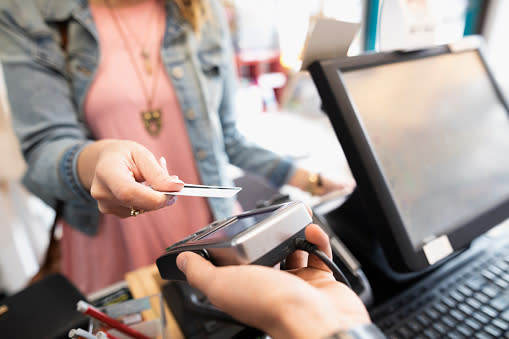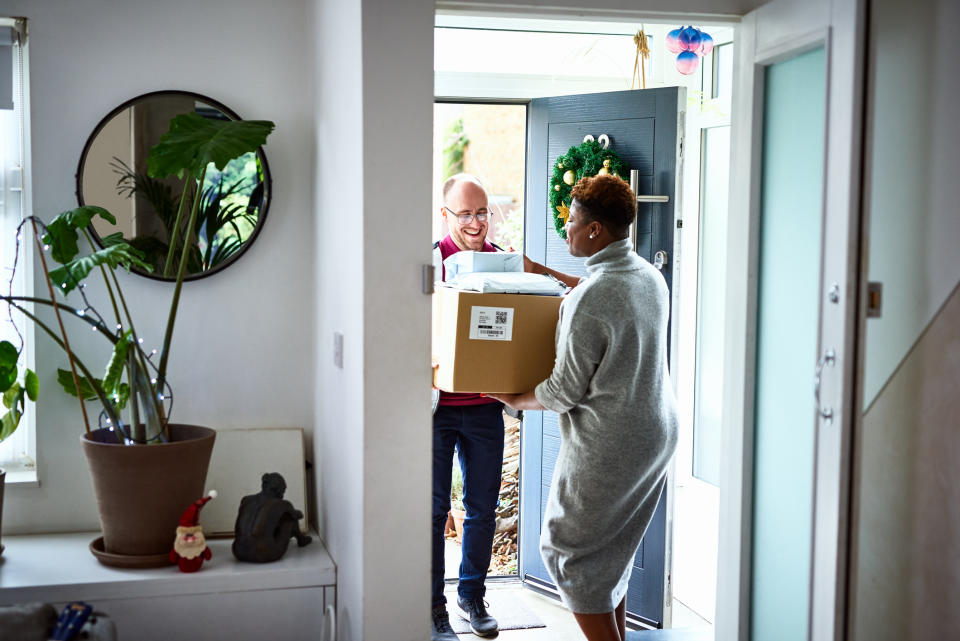Black Friday effect: Shopping expert reveals US trends we will copy next

The USA is a weathervane for Australian retail, with Black Friday sales and Monday’s Cyber Monday deals proof that whatever trends are occurring in the USA, Australia eventually wants in on the action too.
Related story: Woolworths halves prices in massive Black Friday sale
Related story: 10 ways to avoid Black Friday rip-offs
Related story: Australian fashion brand Bardot collapses
eBay Australia this year is launching its biggest-ever Black Friday sales, slashing prices on electronics like the Apple Watch Series 3 by $206 to $299. The retailer expects more than 2.6 million will head to its site on Black Friday, with spending to see double digit growth on 2018’s figures.
“Black Friday is a major event in the US and our data shows Australia has officially caught onto this retail phenomenon, opting for the convenience, delivery options and time-saving benefits of online shopping,” eBay Australia’s head of retail insights, Gavin Dennis, said.
And as Australian shoppers descend into Black Friday-mania, chief executive of retail consultancy group Retail Doctor, Brian Walker, is considering the future.
Speaking to Yahoo Finance, Walker said Australia follows American retail trends closely, which means we can see shopping trends before they arrive on our shores.
He said technology-driven retail is the new frontier, as artificial intelligence (AI) and machine learning rapidly change the way we shop.
“The growth of marketplaces such as eBay, AI and machine learning, the growth of mobile apps and fulfillment and delivery models like UberEats… are the next wave of growth,” he said.
How will artificial intelligence change the way we shop?

According to Walker, AI and machine learning will lead to a divide in the way we purchase items: there will be buying, and there will be shopping.
Items like toothpaste, coffee beans, dishwashing liquid and tissues will be part of subscription services, with machine learning indicating when the coffee beans in your kitchen need to be replenished and even using devices to place the order, or have them automatically delivered through subscription services.
Related story: Google’s latest AI experiment allows you to explore fashion through colour
Related story: Lululemon's new experimental store hints at the future of retail
Related story: Apple might be planning its own subscription bundle
“We already know how much consumer behaviour is indeed highly habitual,” Walker said, noting that around 45 per cent of consumption is repetitive and habitual.
“That part is the domain of AI and subscription.”
But AI will also impact the less habitual, more purposeful shopping.
Walker said tagging - or the practice of loading up information about items and individual shopper habits will see shoppers greeted with more personalised options whenever they open up a site.
What does that mean for bricks and mortar shops?
Walker doesn’t believe online will completely take over, but it will change how we shop. Shops will need to pivot to incorporate AI into their online strategies, and in store will need to shift their stores to offer more of an experience.
Think: shopping with a glass of wine, or grabbing a coffee from the in-store barista. And shopping centres will also shift to include more restaurants and places for people to meet.
There will also be fewer stores, with brands focusing more on flagship style outlets.
Walker said Australia has the third-highest shopping space per capita in the world, meaning there will be some adjustment.
As it stands, online shopping makes up less than 10 per cent of all retail sales, but Walker predicts that will move to take up 20 to 25 per cent within the next five years.
What happens after that? Shoppable TV
“Imagine one day you're sitting at home, you're watching a show and you think, 'Wow I like that jacket that woman is wearing on TV,'” Walker hypothesised.
“You point your device at the TV, and it will be delivered to you the next day. That's not far away.”
Make your money work with Yahoo Finance’s daily newsletter. Sign up here and stay on top of the latest money, news and tech news.

 Yahoo Finance
Yahoo Finance 
